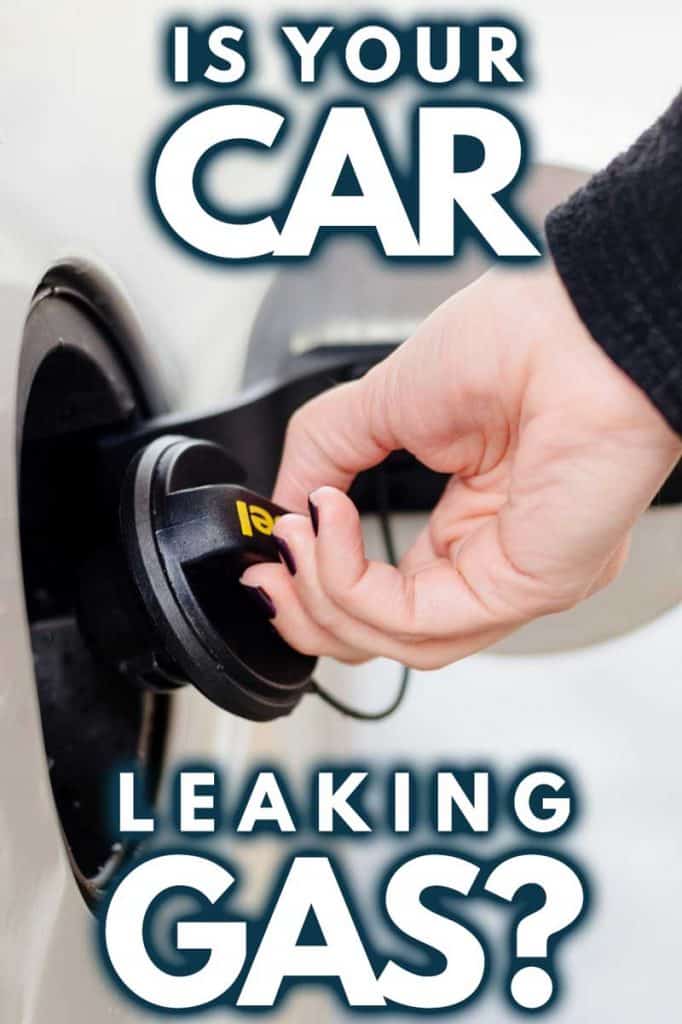 It’s not fun to leave your parking spot in the driveway and see a gas leak coming from your car. Well, you think it’s a gas leak. You can’t entirely be sure, though. Otherwise, your vehicle is working fine, so how can you tell if your car is leaking gas?
It’s not fun to leave your parking spot in the driveway and see a gas leak coming from your car. Well, you think it’s a gas leak. You can’t entirely be sure, though. Otherwise, your vehicle is working fine, so how can you tell if your car is leaking gas?
You’ll know your car is leaking gas by looking for clear or dark liquid puddles where your car was. You can also sniff around for the odor of gas, a dead giveaway. Further, it’s important to track your gas gauge to see if gas is depleting at an unusually quick rate.
In this article, we will elaborate more on how to handle a gas leak in your car. By the time you’re done reading, you’ll know how to identify a gas leak, if you can drive with a leak, and how to get one fixed. Keep reading, as you won’t want to miss it.
How Do I Know If My Car Has a Gas Leak?
Liquid Color
If you park on a crowded street or keep your car in an apartment parking lot, then it’s hard to tell if your vehicle or someone else’s is responsible for the liquid stains you see on the asphalt below. Plus, your car can leak more than just gas, which further confounds the problem.
You can kill two birds with one stone by covering the ground beneath your car with aluminum foil, newspaper, or cardboard. This not only lets you confirm that yes, your car is the one that’s leaking, but it enables you to see the color of the fluid.
Now, gas leaks can be a bit tricky to identify visually. Gas is often translucent, but not exclusively. If a manufacturer puts additives in the gas, then it can look dark, almost brown, or black.
Here are some other liquids that can leak from your car and their colors. This will help you rule out other culprits:
- Transmission and steering fluid will leak bright pink or red.
- Gear lubricant and motor oil will leak a light brown color that looks like coffee.
- Brake fluid and older motor oil can leak darker brown.
- Windshield wiper fluid will leak neon blue.
- Antifreeze will leak bright green or orange depending on the type.
- Older transmission fluid can leak red, as can antifreeze that passes through a rusted radiator.
Most of those colors are pretty obvious, so you can tell quickly enough, which is and isn’t a gas leak. You might get a bit confused with the brown leaks, though, and rightfully so. Oh, and do keep in mind that air conditioning condensation can leak clear as well, so a translucent leak isn’t necessarily gas.
Smell for an Odor
That’s why, as well as looking at your leak, one of the best things you can do for your sanity is sniff. You know what gas smells like, and you shouldn’t have to bend down and get right into the stain to determine if the odor resembles gas. It’s a strong enough smell.
In some instances, you may smell gas, especially when you’re driving, but your car isn’t leaking anything. Well, not yet, at least. That’s still a gas leak. Maybe the gas isn’t exiting the vehicle, but it’s puddling up somewhere, and that’s concerning.
Rely on Your Gas Gauge
By now, you’re pretty sure you have a gas leak, but it still doesn’t hurt to confirm matters. To do that, check your gas gauge. Ideally, you want to start eyeballing the gauge once you fill up at the pump. For the sake of this experiment, buy a full tank of gas. When you park your car for work or at your house for the night, check the gas gauge.
Later, when you go out to your car again, look at the gauge once more. Did you lose any gas between now and then? You shouldn’t have. Gas should only deplete when driving, not when your car sits idle. If the gas has slowly yet steadily disappeared, then that’s all the confirmation you need. You’ve got a gas leak.
Can You Drive a Car That Is Leaking Gas?

Okay, so that’s pretty awful news, but is a gas leak all that bad? You can still drive your car.
You can, but you really, really shouldn’t.
First, you’re putting yourself at a higher risk of running out of gas at an inopportune time. Remember, with a gas leak; gas will deplete from your vehicle even when you’re not driving it. If you don’t check the gas gauge religiously, then your car could start sputtering when you’re driving and suddenly stop working altogether because it’s out of gas.
It’s a waste of your time and your money to keep refilling your gas tank when your car has a gas leak.
If that doesn’t convince you, then maybe this will. Those gas stains you leave behind on streets and parking lots aren’t just embarrassing, but they’re dangerous, too. The slickness makes them slippery when driven over. The stains are flammable, as well.
Should you park your car near any source of heat and the vehicle begins leaking gas, the entire thing can go up in flames. If you and anyone else are in the car when this happens, the injuries you sustain could be significant. People could even die.
So sure, a gas leak might not look like much. It’s not like your car is making clunking sounds or operating poorly. However, a gas leak has the potential for great danger, so once you know you have one, don’t wait to do something about it.
How Do You Fix a Car with a Gas Leak?

It’s now time to schedule an appointment with your mechanic. They can diagnose what’s caused the gas leak, which can be one of several things. Let’s talk about these more now.
The first culprit is a rough idle. When this occurs, your car feels very unsteady to operate. It might bounce or move in other ways that worry you. Typically, if a rough idle causes your gas leak, you should also find that your engine makes a lot of noise when you start your car.
If your gas tank vent hose, fuel pressure regulator, fuel injectors, gas tank caps, or fuel lines break or malfunction, that too could lead to a gas leak. Another more common cause of gas leaks is a gas tank hole. Depending on the severity of the damage, a patch could fix the mess. In some instances, your mechanic may suggest getting a new gas tank.
Now, you may wonder how much getting your car’s gas leak fixed is going to cost you. It can vary depending on the severity of the damage and how old your vehicle is. If it’s the fuel line that’s caused the leak, you might spend $60 to $120 to get the line patched up or replaced. For a new gas tank, that might cost you upwards of $300, maybe more.
Admittedly, it can be a somewhat costly job to get your car’s gas leak repaired. Considering the risks you face by putting yourself, your passengers, and other motorists anywhere near a gas leak, a few hundred dollars isn’t that big of a deal.
Your car can leak gas for a variety of reasons. If you have a rough idle or holes in your gas tank, that could do it. So too could problems with your gas tank vent hose, fuel injectors, fuel lines, fuel pressure regulator, and your gas tank caps.
For a few hundred dollars, maybe more, your mechanic can fix a gas leak. Please prioritize one as soon as you spot it. Your car is at risk of catching fire or exploding at any time since gas is extremely flammable. Your life isn’t worth saving some money!
